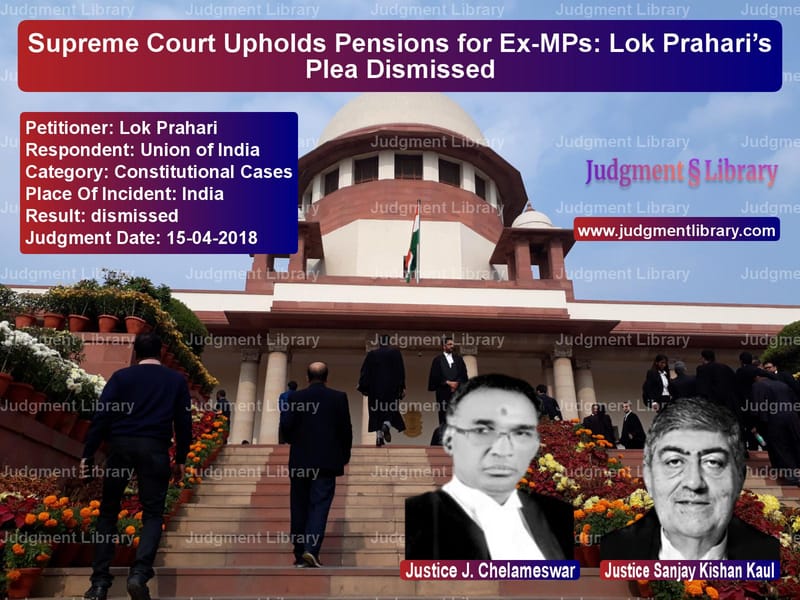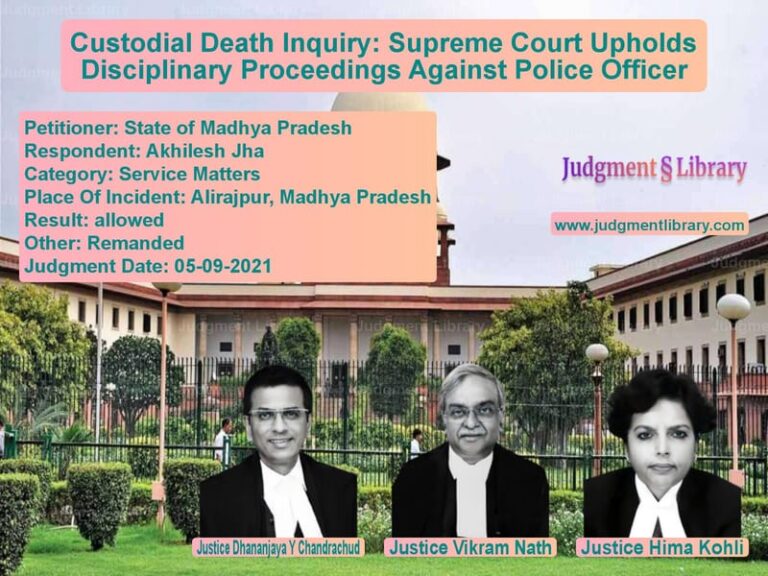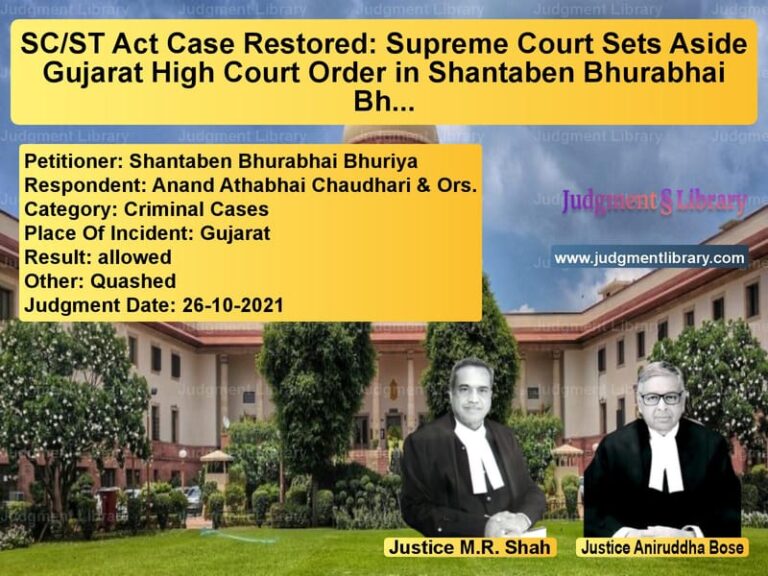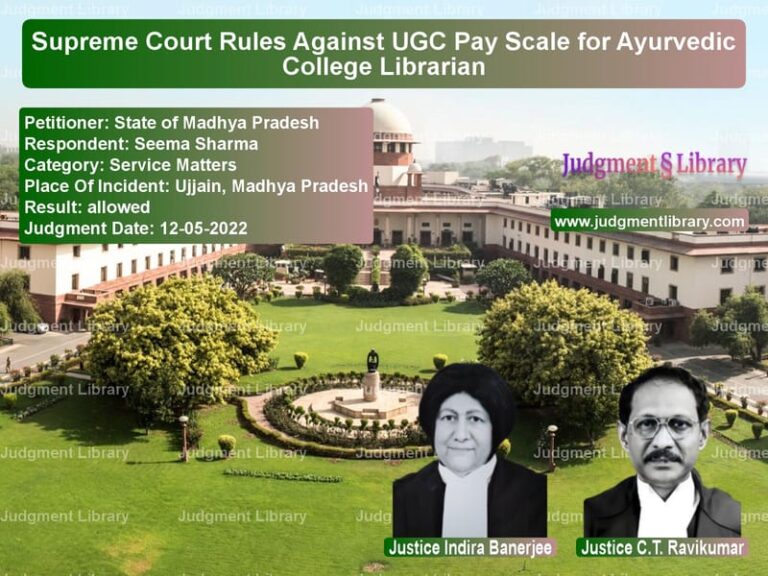Supreme Court Upholds Pensions for Ex-MPs: Lok Prahari’s Plea Dismissed
The Supreme Court of India recently ruled on a significant case challenging the constitutionality of pensions and allowances provided to former Members of Parliament (MPs). The case, Lok Prahari v. Union of India, was brought by the NGO Lok Prahari, which argued that the amendments to the Salaries, Allowances, and Pensions of Members of Parliament Act, 1954, granting lifelong pensions and other benefits to ex-MPs, were unconstitutional and violated Article 14 of the Constitution. However, the Supreme Court dismissed the plea, affirming Parliament’s authority to legislate on the matter.
Background of the Case
The appeal was filed by Lok Prahari, a public interest organization, through its General Secretary S.N. Shukla. The case stemmed from amendments made to the 1954 Act through various legislative changes, including:
- Amendment Act 2003 – Introduced new pension schemes for ex-MPs.
- Amendment Act 2006 – Expanded travel benefits for MPs and their dependents.
- Amendment Act 2010 – Further increased pension and allowances.
Lok Prahari challenged these provisions on the grounds that lifelong pensions for ex-MPs were unconstitutional and an unfair burden on taxpayers.
Petitioner’s (Lok Prahari) Arguments
- The Constitution does not provide for pensions for MPs, unlike provisions for judges, the Comptroller and Auditor General (CAG), and other constitutional functionaries.
- The amendments allowing pensions to ex-MPs and their dependents were arbitrary and violated Article 14 (Right to Equality) of the Constitution.
- Providing benefits such as free travel and unlimited phone and electricity quotas to ex-MPs was irrational and against public interest.
- The amendments placed an unfair financial burden on taxpayers without a legitimate justification.
Respondent’s (Union of India) Arguments
- Parliament has the legislative competence to determine the salaries and allowances of MPs under Article 106 of the Constitution.
- The Supreme Court had previously upheld the legality of pensions for ex-MPs in Common Cause v. Union of India (2002), establishing that Parliament had the authority to enact such laws.
- The benefits provided were part of a larger policy framework ensuring the dignity and welfare of former legislators.
- Pensionary benefits were a policy decision and not subject to judicial interference unless they violated fundamental rights.
Supreme Court’s Observations
The Supreme Court extensively analyzed the legal framework governing the salaries and allowances of MPs and made several key observations:
- “Article 106 of the Constitution empowers Parliament to legislate on the salaries, allowances, and pensions of MPs.”
- “There is no constitutional prohibition against granting pensions to MPs.”
- “The Court cannot interfere in matters of legislative policy unless there is an explicit violation of constitutional principles.”
- “The amendments under challenge are a matter of policy and not subject to judicial review unless shown to be manifestly arbitrary.”
Final Judgment
The Supreme Court dismissed the appeal and upheld the validity of pensions and allowances for ex-MPs. The Court ruled:
“Parliament is competent to legislate on pensions for former MPs. The issue does not involve any constitutional violation and remains within the domain of legislative policy.”
The Court also emphasized that while the allocation of resources may be debated in Parliament, it does not fall within the scope of judicial review.
Significance of the Judgment
This ruling is crucial for several reasons:
- Reaffirms Parliament’s Authority: The judgment solidifies Parliament’s power to legislate on matters of salaries and allowances for MPs.
- Limits Judicial Intervention: The decision establishes that courts will not interfere in policy matters unless they violate fundamental rights.
- Clarifies Constitutional Provisions: The ruling underscores that there is no constitutional bar against granting pensions to MPs.
Conclusion
The Supreme Court’s ruling in this case upholds the principle that matters of legislative policy are best left to the wisdom of Parliament. While the judgment has sparked public debate on the necessity of lifelong pensions for ex-MPs, it reinforces the legal framework allowing such provisions. This case serves as an important precedent in interpreting legislative authority under Article 106 of the Constitution.
Petitioner Name: Lok Prahari.Respondent Name: Union of India.Judgment By: Justice J. Chelameswar, Justice Sanjay Kishan Kaul.Place Of Incident: India.Judgment Date: 15-04-2018.
Don’t miss out on the full details! Download the complete judgment in PDF format below and gain valuable insights instantly!
Download Judgment: Lok Prahari vs Union of India Supreme Court of India Judgment Dated 15-04-2018.pdf
Direct Downlaod Judgment: Direct downlaod this Judgment
See all petitions in Fundamental Rights
See all petitions in Constitution Interpretation
See all petitions in Public Interest Litigation
See all petitions in Judgment by J. Chelameswar
See all petitions in Judgment by Sanjay Kishan Kaul
See all petitions in dismissed
See all petitions in supreme court of India judgments April 2018
See all petitions in 2018 judgments
See all posts in Constitutional Cases Category
See all allowed petitions in Constitutional Cases Category
See all Dismissed petitions in Constitutional Cases Category
See all partially allowed petitions in Constitutional Cases Category







